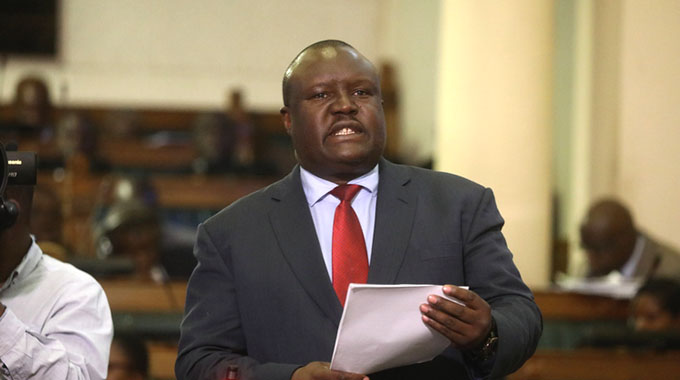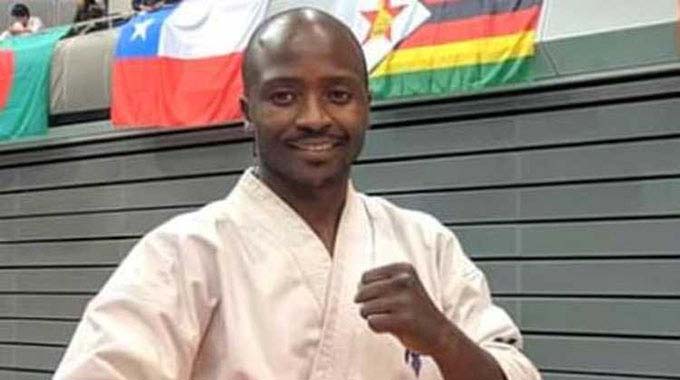Southern Africa PAP presidency to cement continental unity

Ranga Mataire Group Political Editor
Chiefs Council President Senator Fortune Charumbira, the southern Africa candidate for the presidency of the Pan-African Parliament (PAP) is on the verge of making history if elections taking place in South Africa today go in his favour.
Besides capping a personal feather, Chief Charumbira’s victory is likely to cement continental unity and entrench a democratic culture in governance institutions given that the position used to be dominated by personnel from western and northern African countries.
The mere fact that the majority of southern African states including South Africa, are banding together in support of Zimbabwe’s candidacy is a seal of approval for President Mnangagwa’s administration whose foreign policy espouses the notion of being “a friend to all and enemy to none.”
Although a victory for Chief Charumbira is almost a given, it’s not gonna be an easy ride as regions that have previously dominated the position are likely to vote against the southern African candidacy.
Chief Charumbira was nominated by the PAP southern Africa caucus as its candidate, but elections were aborted in May last year over disagreements on whether or not candidates from northern and western African countries were eligible given that they had occupied the office before.
The impasse seemed to have been resolved after the African Union Commission threw its weight behind the principle of rotation. A fact finding delegation sent by AU Commission chairperson, Mr Moussa Faki, emphasised that stakeholders were in support of rotation.
Everything seems to favour Chief Charumbira to land the post as the southern African bloc has argued that since he has been acting president since March last year following the expiry of the term of office of Bouras Djamel of Algeria, he should assume the presidency. Chief Charumbira was the fourth vice president of the continental body since 2018.
In its position paper, the southern Africa regional caucus argues that the principle of rotation remained an established practice within the African Union that conceived PAP in 2004.
“The principle of geographical rotation is an established practice within the African Union that has guided the Pan-African Parliament since its inception in 2004 in the election of its President. The principle of rotation is the heart, the soul, nay, the bedrock of equity, inclusiveness, fairness, justice, and the unity of Africa- values which the PAP and, indeed, any other organ of the AU ought to hold dear,” reads part of the paper.
The paper says the principle of rotation has been in force since PAP formation as Mrs Gertrude Mongella, the inaugural president came from Tanzania in the eastern region and was succeeded by Mr Idriss Ndele Moussa Yayami from 2009 to 2012 who was from Chad in the central region. Dr Moussa was succeeded by the late Mr Bethel Amadi from Nigeria (western region) who led PAP from 2012 to 2015. It was in 2015 where the rotation principle ended.
Ordinarily, if all countries had agreed to the rotational system procedure, Chief Charumbira could cruise through unopposed. However, standing in his way is Malawi legislator, Mr Yeremiah Chihana who appears to be a mere spoiler as he is challenging the southern caucus’s nomination of Chief Charumbira as its official candidate. One can however not rule out a last minute caucus by the southern region to convince Mr Chihana to withdraw his candidature in support of Chief Charumbira.
Despite the AU backing of the rotational principle, the East African PAP caucus is largely backing South Sudanese MP and former child soldier Albino Aboug as its candidate, though the support of some Ethiopian MPs remains uncertain. It appears the East African caucus is not in support of the principle of rotation arguing that the AU cannot dictate to the PAP, which is an autonomous body.
That as it may, Chief Charumbira remains the front-runner. History favours his victory. The Chief was elected unopposed as the 4th vice president of the PAP in October 2018, representing the southern African region in the Bureau. He oversaw the portfolios of Plenary, Languages, Committees, Media and Communications.
In May 2016, he was elected chairperson of the PAP Permanent Committee on Audit and Public Accounts. He had previously served as the chair of the Committee on Administrative and Financial Evaluation (CAFÉ), an ad-hoc body that had limited mandate.
His background as a traditional leader brings an aura of integrity into PAP. Having served as Deputy Minister in the Ministry of Local Government and Public Works in 2000, Chief Charumbira is not alien to issues of governance. Backed by a Master’s in Business Administration (MBA) as well as a Bachelor in Administration Law and Labour Law, Chief Charumbira is the ideal candidate to lead the continental body, which was set up to ensure the full participation of African peoples in the economic development and integration of the continent.
Situated in Midrand, South Africa, PAP is intended as a platform for people from all African states to be involved in discussions and decision making on the problems and challenges facing the continent.
Rather than being elected directly by the people, PAP members are designated by the legislatures of their Member State and members of their domestic legislatures. The ultimate aim is for the parliament to be an institution with full legislative powers, whose members are elected by universal suffrage. At the moment, PAP plays a consultative, advisory and budgetary oversight powers within the AU.
The functions and objectives of the parliament are set out in the Protocol to the Abuja Treaty relating to the Pan-African Parliament. In summary, PAP is there to facilitate and oversee the implementation of AU policies, objectives and programmes. Promotion of human rights and consolidation of democratic institutions and culture, good governance, transparency and the rule of law by all AU organs- Regional Economic Communities (RECs) and member states. PAP is also expected to participate in creating awareness among African people on the AU’s objectives, policy aims and programmes including strengthening of continental solidarity, cooperation and development.
The election of Chief Charumbira will therefore be a historic event that will re-align the institution to natural principles of fairness and equality as the rotational system will likely become the norm in future leadership polls.











Comments